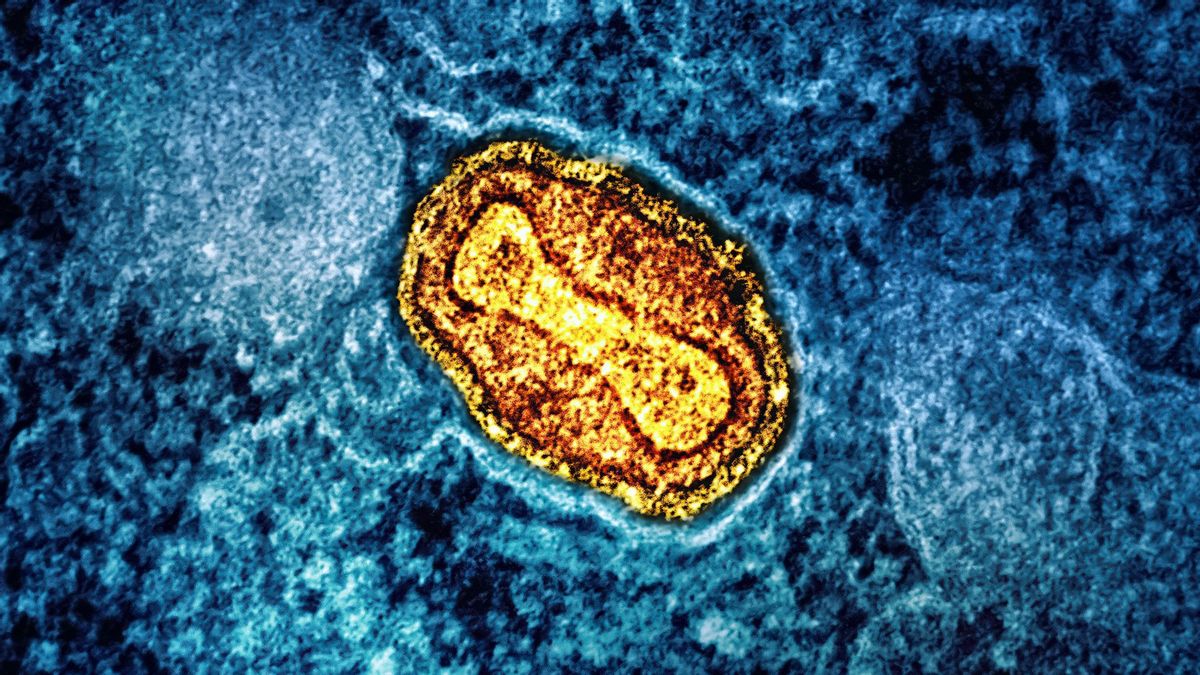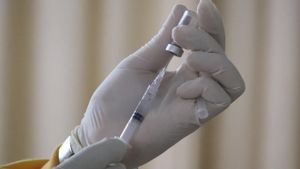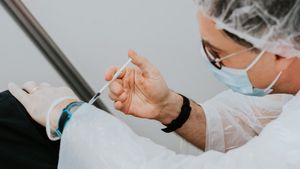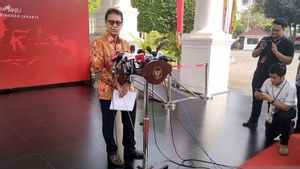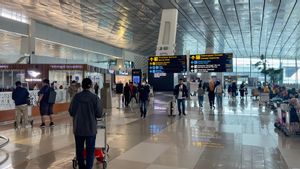Member of Commission IX DPR RI Netty Prastiyani Aher asked the government to increase efforts to prevent the spread of the Monkeypox virus (Mpox) or monkeypox. One of them is by tightening the entry route for people to Indonesia from abroad.
The increasing number of monkeypox cases in the world and the ASEAN region must be seriously watched by the Indonesian government. Quick and responsive steps must be taken immediately to avoid worse risks," said Netty, Wednesday, August 28.
As is known, the World Health Organization (WHO) on August 14, 2024 has designated Mpox as an International Public Health Emergency (Public Health Emergency of International Concern/PHEIC) following an increase in Mpox cases in the Democratic Republic of Congo and a number of countries in Africa. Currently, Mpox is also increasingly endemic in ASEAN.
Therefore, Netty encouraged the government to follow WHO protocols in dealing with monkeypox.
"For example, we apply monkeypox screening at the entrances of affected countries, especially our neighbors such as Thailand and the Philippines who have confirmed new cases," he said.
According to Netty, such swift and responsive steps need to be taken to avoid worse risks to its spread. He said strict screening was needed at the entrances to the country so that the spread of the Mpox virus could be prevented, especially since Indonesia would host the Indonesia-Africa Forum (IAF) which will be held in Bali on September 1-3.
SEE ALSO:
"We can increase supervision at the entrance to the country by using a thermal scanner. Make sure everyone who enters Indonesia, both Indonesian citizens and foreigners, has gone through strict screening and is proven by health documents," said Netty.
Commission IX of the House of Representatives supports the Ministry of Transportation (Kemenhub) which requires the re-use of the OneSehat application for foreign travelers such as during the Covid-19 pandemic. Netty assessed that this step could be effective in preventing and handling the transmission of Mpox disease.
"Of course this must apply to anyone, without exception. And make sure the health infrastructure is ready, for example for quarantine and medical action, and officers in the field understand what to do if they find a suspect," he explained.
In Indonesia, there have been 88 cumulative cases since it was discovered in 2022 where throughout 2024, there have been 14 monkeypox cases in Indonesia. So far, all patients have recovered and have not complained about severe symptoms.
The Mpox case that spread in Indonesia is the 2b Clade variant, with the fatality rate believed to be lower than the 1b Clade.
As another anticipatory measure to avoid the Mpox outbreak, the Government has prepared Mpox treatment and vaccination. Currently, the Government is importing 1,600 vaccines from Denmark, although the administration cannot be done en masse.
"This is a strategic and precise step in efforts to prevent and deal with Mpox disease in Indonesia. Vaccine administration must be right on target and effective in reaching vulnerable groups," said Netty.
Netty also advised that the Mpox vaccine should not be misused by irresponsible parties considering the price of one dose of vaccine reached Rp. 3.5 million. This means that for 1,600 vaccines, the total budget issued by the government reaches Rp. 5.6 billion. Previously in 2022, Indonesia already had 1,000 Mpox vaccines, but now only 40 vaccines remain.
According to the legislator from the West Java VIII electoral district, it would be nice if the Mpox vaccine was intended for health workers first. Netty said, as for the officers who screened the Indonesia-Africa Forum event delegation which will take place in Bali.
"Including lab workers who often carry out examinations and vulnerable groups, especially in areas where there is a history of Mpox disease spread," he explained.
The Mpox itself is a species of smallpox virus, characterized by a rash and then followed by a lump that appears on the skin. According to the Ministry of Health, the majority of Mpox spreads occur through sexual contact so that the current Mpox vaccine, apart from health workers, is prioritized for sex-risk groups.
"We hope that in the future Mpox vaccination recipients can be further expanded, especially from the case report in Africa, the Mpox case has been found in many children whose transmission is through physical contact with the person who takes care of them," explained Netty.
In addition to sexual intercourse, Mpox transmission is also said to occur when it touches the secretion of infected people, touching their clothes or even speaking at close range for a certain period of time, with the potential for saliva droplets or droplets. This is a possible transmission line mentioned by WHO.
In other words, the more contact and the longer contact, the greater the chance of transmission. For this reason, Netty appealed to socialization and education to the public, it is important because there are still many people who do not know about this monkeypox.
These campaigns and promotions for handling monkeypox need massively in public facilities. This step needs to be taken so that our people have knowledge of monkeypox, both symptoms, handling methods, and distribution in the world," he appealed.
Netty said prevention measures would be effective when people know what they are facing. With accurate knowledge, the public also has the awareness to avoid potential diseases.
"It's not that we want to scare people, but prevent better than cure. Moreover, the 1B clade variant that develops in Africa is more dangerous than clade II," concluded Netty.
The English, Chinese, Japanese, Arabic, and French versions are automatically generated by the AI. So there may still be inaccuracies in translating, please always see Indonesian as our main language. (system supported by DigitalSiber.id)
